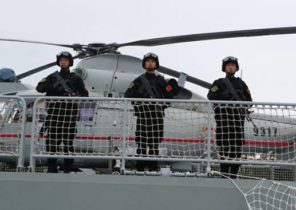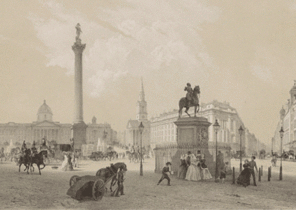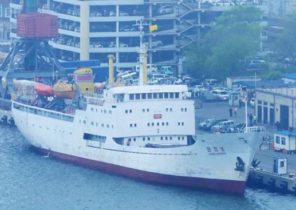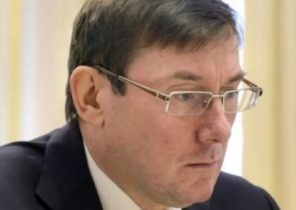
Russia in recent years demonstrates aspirations to reshape the world according to new patterns and to consolidate the principle of separation of geopolitical spheres of influence. Moscow is ready to pay a relatively high price now in exchange for foreign dividends in the long term by undermining the existing international order. These considerations may explain the relatively small effectiveness of Western anti-Russian sanctions. Position the newly elected President of the United States against Russia particularly disturbing, as it could spur the Kremlin to continue the aggressive policy in Ukraine and other countries of the “near abroad”. The implementation of such a scenario would mean not that other, as the dismantling of the rule of international law and the substitution of his “strong right” in the international arena.
Moscow is not only trying to force to keep neighboring countries in its sphere of influence, encouraging local separatism, and promoting economic destabilization, but also demonstrates a willingness to grossly violate fundamental principles of inviolability of internationally recognized state borders underlying the existing world order. To this end, Russia uses economic pressure (the limitation of energy supply, trade embargo) and aggression aimed at undermining the territorial integrity of neighboring States, creating and maintaining them hotbeds of instability in the form of a quasi-separatist entities, first in Georgia and later in Ukraine, including the annexation of Crimea.
Unfortunately, the continuing sanctions policy of the West, initiated in March 2014 in Moscow, failed to change Russian policy towards Ukraine. The only achievement of the sanctions was the presence of Moscow to the negotiating table in Minsk, which reduced the intensity of armed clashes in the Ukrainian Donbass. At the same time, Russia continues the occupation of Crimea, and contributes to the continuation of low-intensity conflict in Eastern Ukraine through a comprehensive military and economic support of the two quasi-public entities, the so-called Donetsk and Luhansk people’s republics.
Price sanctions on Russia began to be felt the outflow of capital, the rapid devaluation of the Russian ruble, restricted access to Western technology and the inability to obtain loans from Western banks to Finance current debts and investment in the economy. The main economic costs Russia has in recent years, primarily because of the relatively low oil prices, but here the Western sanctions are a serious aggravating factor hampering the country out of recession and achieve economic growth.
For quite a long time the Russian authorities are looking for all kinds of “workarounds” for the lifting of sanctions. First, Russia hopes to find opportunities for bilateral cooperation with the Western populist, right-wing and conservative forces. The administration of U.S. President Donald trump may be the beginning of the destruction of the sanctions policy of the West. The growing influence of the conservative populist forces in Europe, demonstrating loyalty to Russia and to support the lifting of anti-Russian sanctions, could also help the Kremlin in this direction. Moscow apparently hopes to achieve the lifting of sanctions through the “friendly regimes in the West” without the need to change his aggressive policy in Ukraine.
Moscow also tried to change the agenda of international negotiations to “change” the Syrian settlement of the Ukrainian issue. The calculation was made of the fact that, exacerbating the situation of people in Syria, it will be possible to escalate for the EU the problem of the influx of refugees from the Middle East. This approach was to strengthen the voice of the conservative populist forces in Europe.
This is much more important win for Moscow in case of cancellation of sanctions will be able to strike at the very core of liberal values and principles of solidarity of the civilized world in opposing the countries-aggressors. The establishment of the “pragmatic” of bilateral relations with the United States and the arrival of conditionally loyal to the Russian political elites in France and Germany can actually split the transatlantic unity of the West to maintain the sanctions regime. The lack of a consolidated approach of the West towards Russia in the medium term may encourage the Kremlin to further aggressive actions, notably in the so-called post-Soviet “near abroad.”
The election of the President of the United States of the person, hinting at a willingness to continue to work on the principle of “division of spheres of influence” in the international arena, the Kremlin is encouraging, and shows that the current strategy of Russia still has good chances of success. Furthermore, the potential commitment by the administration to trump for the sake of “normalization of relations with Russia,” to make concessions or even a “deal” in question, lying in the plane of the fundamental principles of international law, threatens the continuation of the aggressive steps of the Kremlin in Ukraine and other former Soviet countries. In this regard, 2017 will largely be the determining and significant for the future of liberal values and principles of solidarity in the protection of the foundations of international law. It would also demonstrate to what extent the Kremlin will be able to replace international law “the right strong”.
Ruslan Carmac is a political analyst of the Fund “Democratic initiatives” name Ilka Kucheriv.







